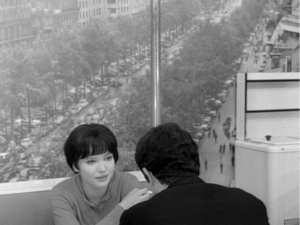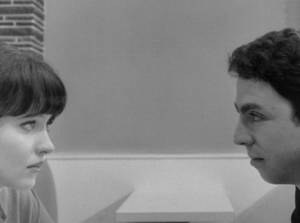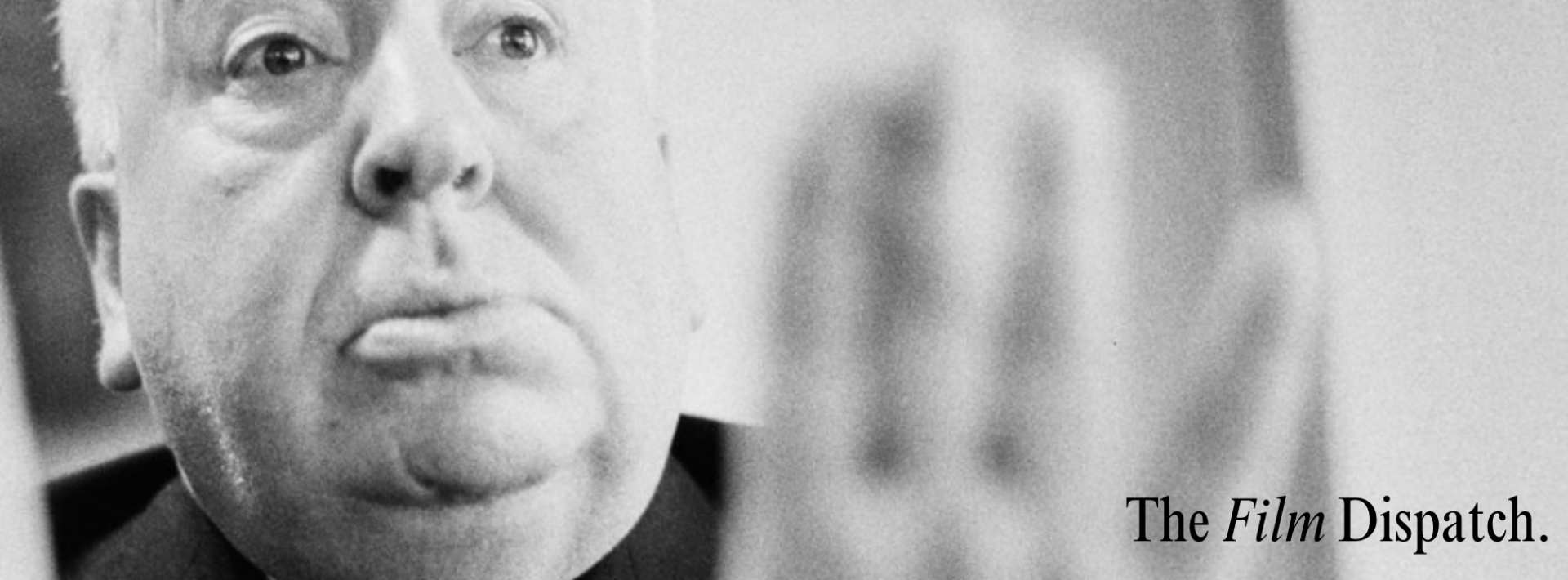Looking back to a conversation between two characters in Jean Luc Godard’s Vivre sa Vie (1962), Weiyi Wang interrogates the camera’s relationship to the emotionality within the sequence.
Regarding dialogue, rather than discussing the contents of the characters’ conversations in Vivre sa vie (Jean-Luc Godard, 1962), I will instead discuss one of the episodes that features two characters having a conversation. Different from Hollywood’s presentation of the passing of time (labelled the movement-image by Deleuze), Godard focuses on the experience of life. In Godard’s films, viewers can feel the moment of time and emotion change through the cinematic devices he uses to portray the passing of time.
 (Figure A)
(Figure A)
In this episode (Fig. A), Nana (Anna Karina) and Raoul (Sady Rebbot) express their opinions of one another to each other. Raoul’s back is turned away from the camera, and we can only follow Nana’s dialogue and facial expressions to see the changes in the plot. As they talk, the camera switches from the left side to the right and back again, a very distinctive and elegant movement, as if Godard’s camera language is closely linked to the slightest change in the protagonist’s inner emotions. Each camera movement is linked to Nana’s psychological expectation that Raoul may express his opinion of her. We feel that she expects what Raoul is saying, what Raoul is feeling about her.
In the second episode (Fig. B), the camera shifts to the side so that we can make out the faces of both of the characters. This is the first time that we are able to see Raoul’s face and this gives the later episode a connotation of more depth. The camera moves to their separate sides as they talk, revealing only one person’s face rather than encompassing two people and an entire scene. The episode is more like a test straight into Nana’s inner heart, a test of Raoul’s emotions for Nana, of whether he loves her. After a period of conversation, Nana’s emotions and the expectations she had of her conversation with Raoul are left unsatisfied. Raoul wants Nana to smile, and Nana expresses that she does not want to do. For the first time, their faces appear together in one frame (Fig. B). They stare at each other, and gaze into one another’s eyes, which are full of emotion. Within this scene, Godard proves to the viewer, and to the film, itself that no dialogue is needed. The shot is static – everything is static in this moment. We just need to enjoy this moment and observe the slightly depressed feelings that are expressed on Nana’s face. However, as a generic male figure Raoul does not come across as sentimental; he is confident and he is the one who wants to take advantage of Nana. This is conveyed to the viewer by the glimpse of a smile in his expression.

(Figure B)
These episodes display the emotional experience of the protagonists during the passing of time. I cannot help but wonder if Kar-wai Wong’s In the Mood for Love (2000) has taken a page from Godard’s techniques in Vivre sa vie (1962).
by Weiyi Wang

